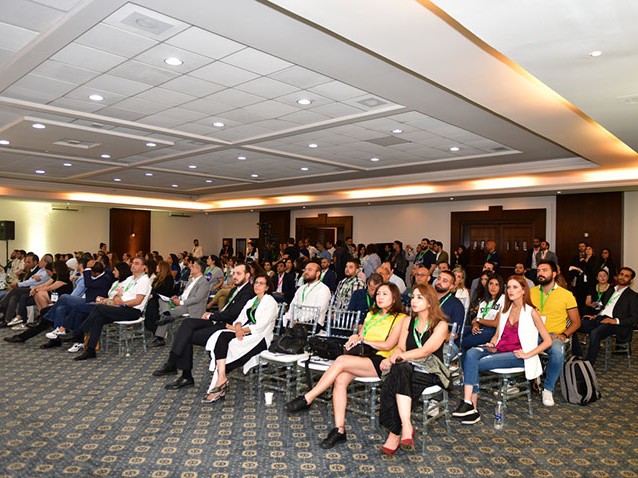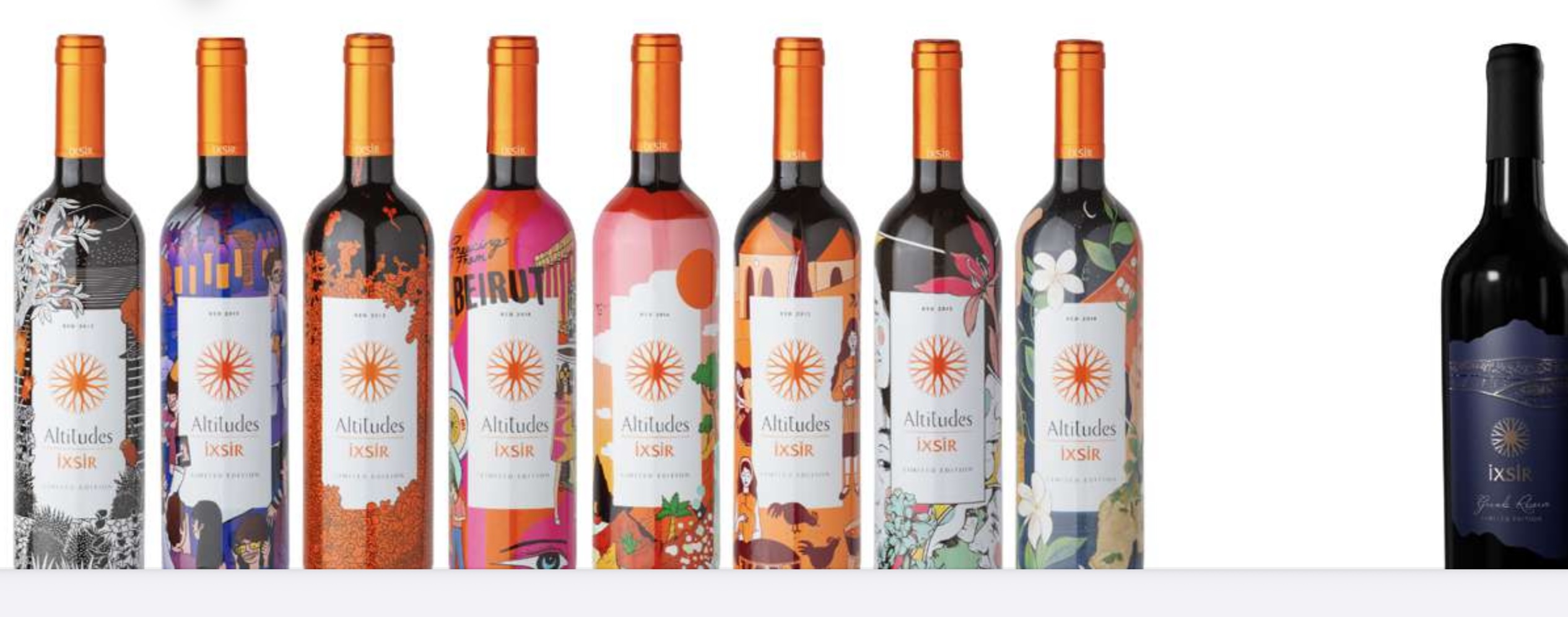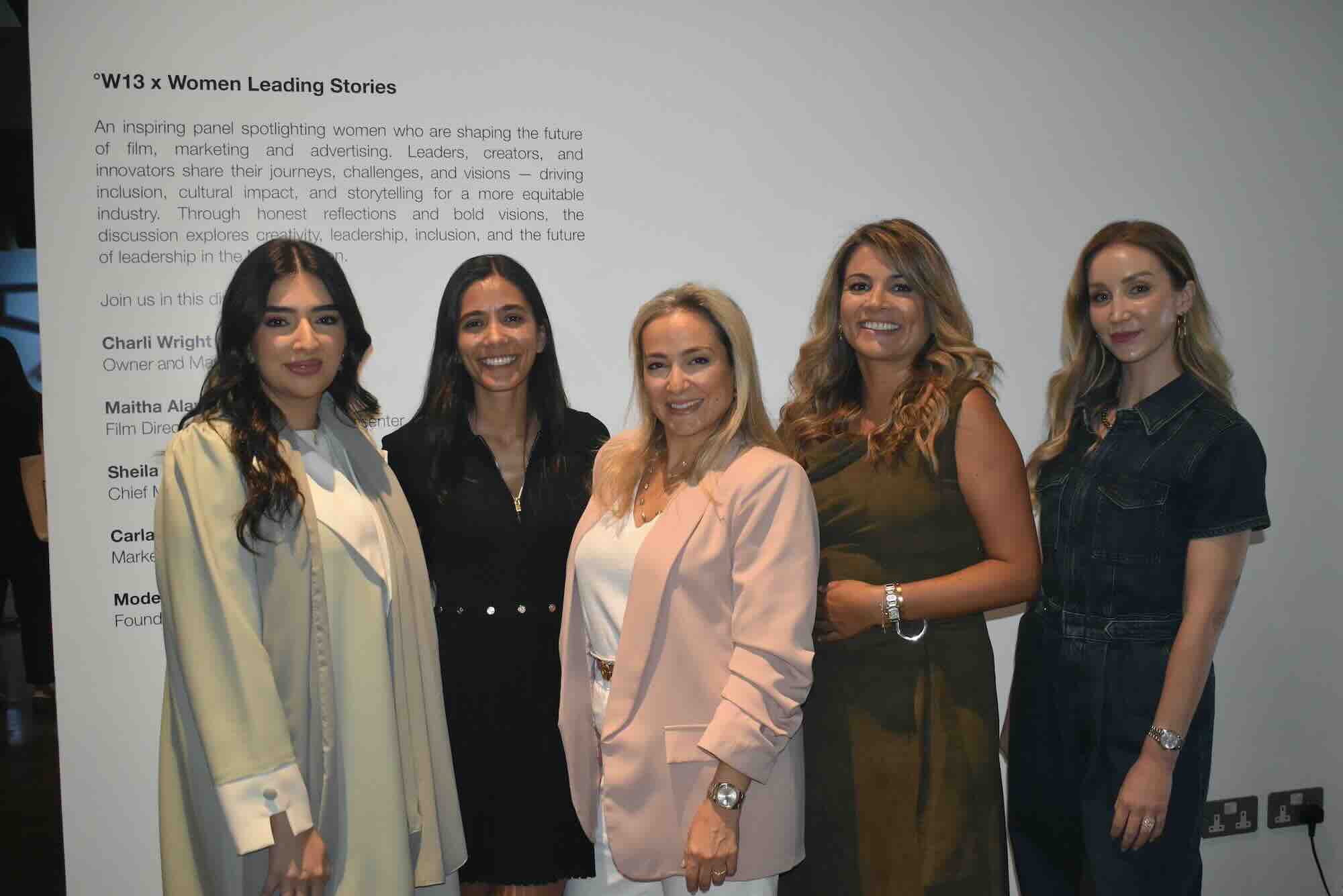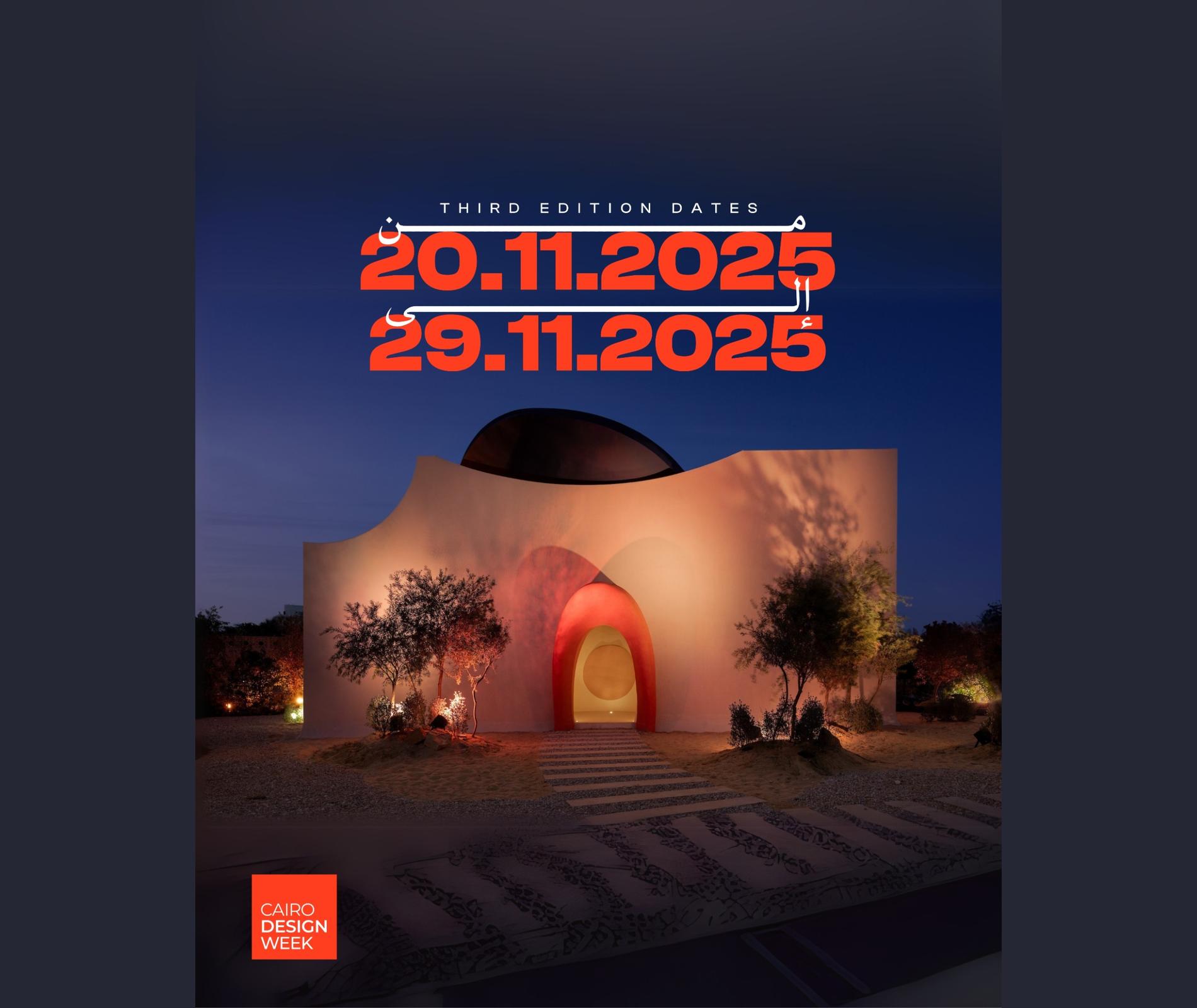News - Events
AD EDGE Forum, a resounding success
by Ghada Azzi
June 16, 2019
.jpg) Advertisement
AdvertisementThe Ad/Edge Forum, which was powered by ArabAd Magazine in collaboration with Arabnet, brought together some of the brightest minds in Adtech and Digital Media who took part in an action-packed one-day program that saw cutting-edge presentations, in-depth sessions and panel debates where leading brands and industry thought leaders debated the latest in tech, data and creativity.
The day kicked of with a panel on “New Monetization Strategies for Publishers” with Eileen Le Muet, VP International, Group Le Figaro; Luke McGreevy, Head Of Commercial - Middle East, Financial Times; Kinda Ibrahim, Director of Media Partnerships – Twitter MENA; Rami Saad, Content, Partner Management, and Business Development Lead, Snap Inc. and moderator Rita Makhoul, Editorial Publisher, ArabNet. They discussed how publisher monetization has become an industry-wide riddle, as growing digital revenues still don’t make up for the loss of traditional ad income. They explained how they are running to grow their distribution channels, develop multimedia offerings, publish directly on social platforms and keep up with their changing content algorithms. At the same time, they concurred, pointing out that that publishers today must have robust data collection, analysis and monetization strategies, while carefully managing consumer privacy and data protection. However, it appears to be more than just about digital tools, as Le Muet from le Figaro and McGreevy of Financial Times shared how they are now going on revamping their business models and introducing new services such as subscription, content creation, native advertising, events and even going for e-commerce.
“We capitalize mainly on our strengths… and in our world it’s about content. So we have been focusing heavily on how we could improve our channels… betting on some new projects, and taking some risks,” McGreevy said. “The most important thing was to get the energy in the company to express itself. And always reassess what you are doing and adapt. And we keep on diversifying our offerings. We have FT Special, FT events, FT Research, etc."
“We don’t oppose print and digital anymore; it doesn’t make sense,” said Le Muet. "We are digging more and more contents, rich formats. A lot people want to be aligned around thought leadership content. We are constantly bringing in new ideas. We have something that is called Brand Suite & Brand Stories (old school version of advertorial). “
Couple of years ago Le Figaro was really reluctant to post something commercial. But today they have what we call branded content, where the company is in charge of the editorial aspect. There is also MAD a new experience by Figaro that is 100% social and video in order to appeal to a younger audience.
Another golden rule according to Saad is to “Watch over your business and stop the wrong things. Good ideas can last but also can die. Try things out and accept if it doesn’t work. Above all agility matters most and one should watch out to not work in siloes.”
A masterly sparkling keynote address on how to “Enter the Cult of Extreme Innovation” from Mark Adams, Chief Innovation Officer of VICE, followed setting the tone on how brands may forge their path in digital and learn what it takes to innovate for the future.
Adams started by acknowledging, “Marketers are exhausted nowadays, struggling with the pace of change with practices that haven't caught up yet with technology. Marketing today is like running after a ball with basically no strategy.” Adams spoke of some of the practices used by leading brands and agency professionals. “In order to innovate, one can't keep running and trying new things,” he said. This doesn't work! Far from it! Brands need to be mindful of not getting caught up in advertising trends simply as a token or a gimmick, and instead be sure to do something that is authentic to their brand and that actually resonates with its purpose — and therefore, its audience.
Innovation is complete utter rejection of the traditional system. It also doesn't start with defining an audience as demographics segmentation can't be done anymore the way it used to be as in male, 21, from Lebanon, into techno music etc. "So whenever we are thinking demographic, catch yourself and get away from it," he said. “Instead define your segments tribally.”
The exuberant young VP, showed some examples where prominent brands have gone wrong like Pepsi, Burger King, Scoda, highlighting disastrous messages based on a so-called "creative strategy" where audience was defined as the millenials. He recommended avoiding targeting a demographic that doesn’t exist like millennials. Millennial is a useless buzzword that simply means people of a certain age that are media savvy, connected, and able to spot current trends. It’s a useless categorization. Millennials, you see, don’t often identify as millennials. It’s rare to hear, “Hi, I’m Mark, a 26-year-old millennial.” It never happens. This also tends to make your target personas rather shallow. Agencies tend to file people into a box, whether they fit or not. Useless!
2nd rule: Don't get product obsessed, don't build your business on one gimmick like for instance 360 video; that too doesn't work. What works is to identify tribes and engage with them in meaningful ways. Because innovation is culture. This is the best way to gain leading insights to elevate one’s creative visions.
He spoke on how Vice went from being a tiny niche magazine to become a six billion dollar media company beating MTV. It's been nominated in 2018 for more Emmys than any other news company. How is this possible? How do we innovate? Where do we start? "First you need to know that anyone can change. All of us are petrified, anxious people, giving our lives to our work. We are Alfas with a capital A, hard-core at what we do." So to change an extreme approach to innovation needs to be taken.
“At Vice we are constantly innovating, releasing multiple products every year. We couldn't do that if we were answering 150 emails everyday. Email me and you won't get a response.
Because there is a sacrifice to be made. Extreme innovation is the idea that this will happen or everything else. A strategy requires a sacrifice. So you need to let go on some of the old things you were doing in order to find the time to innovate. When you commit to innovation you can't live the life you lived before.”
Adams went on sharing lessons brands can glean from VICE’s way of doing business while also delivering key points to analyze when deciding whether it’s worth to enter the conversation, and how.
First and foremost, a brand must define its targets as cultural tribes. 1) Address them with immersive empathy (what do they really need? 2) Authentic brand truth (what is utterly authentic and true about the brand? 3) Deposit value into culture (what authentic contribution can we make to their need?) 4) Express with craft of storytelling and finally 5) Create a spectrum of value to turn audience into consumer.
It is the ability to follow simple human truths in delivering a narrative that’s compelling to those who might otherwise prove disinterested, that will make your campaign a knockout success. “In order to extract value, you need to deposit something of true value to your audience,” Adam noted, “and once you do so, they will never stop thanking you for it.”
This is the new model Vice goes through. In the world of innovation you need to have a defined model. He reassured that brands are built across passions and tribes. That's how it’s done at Vice. That's how they built their eco-system. And they don't do it to sell ads, "we don't care about selling ads," he noted. After strategically activating every tribe your brand cares about, based on the passions each tribe is defined by, not on the demographic, you start creating the definitive pieces of content in their conversation. So instead of paying attention to what new gimmick or what new technology was out, rather focus on new tribes. "So pay attention to culture not to technology," he insisted. "And the opportunities are huge. Because the world is a cluster of cultural networks." If we can get away from emails, if we can get away from the gimmicks, the latest trend etc. and get strategic, we are sure to succeed. Because people are sure to connect around their passion. When you talk about your passions, and identify ways to create better content around the topics you’re most enthusiastic about, Adams said, that’s when you start creating conversations that are really hard to walk away from. And this is how you can tell captivating stories that everyone would like to engage with.
Adams provided a fascinating insight into how to create fame for brands through dynamic presentation and ended saying “Don’t go crazy in this insane marketing world.”
Following Adams’ high-octane presentation was Luca Allam, Managing Director of PHD UAE, with a much gentler but equally exciting talk. Allam provided an invaluable perspective on “Why the Agency Transformation is the Catalyst for Client and Industry Growth” with a segment on how PHD, a company often regarded as an MBU, a Media Buying Unit, which is not; far from it, keeps pushing its creative agenda.
A Panel on Content Marketing’s Recipes for Success followed tackling the challenges that all stakeholders (brands, agencies, and publishers) are facing and the secret recipes for a successful content marketing. The panel included Damien Le Castrec, Strategy Director, Droga5; Rebecca Allen, Chief Commercial Officer, Codec - AI for Content Marketing; Urszula Bieganska, Head of Marketing - Middle East Africa, LEGO Group with moderator Michael Maksoudian, Managing Partner, Netizency. Speakers pointed to the benefits of creating content that takes into consideration and in a meaningful way the data collected. And insisted to make sure the content is useful, helpful and relevant to the platform’s audience. All agreed that Social media is completely useless to a business if there is no quality content to share. Having a clear content strategy - and the tools and talent required to support it - ensures that content marketing is optimized to maximize engagement, and ultimately revenue. It's all about building a hand–mind connection by creating things and telling stories about them. “Lego likes to have stories told with and about it,” said Bieganska.
When asked by Maksoudian on how to make content more desirable, Damien LeCastrec of Droga5 insisted that we should stop talking about data and rather focus on ideas again. “Let’s stop talking about buzzwords that are meaningless. Also let’s talk less about data and content and let’s start focusing around ideas that matter,” he said. “I believe it’s more about the idea and less about tech,” he insisted.
This panel covered how to use data to identify creative ideas, which will resonate with your sector.
Panel on E-Commerce for Brands explored how MENA brands are delving into eCommerce, the challenges and lessons learned from early adopters, and how eCommerce as a new channel will impact marketing and communication strategies. The debate included: Ashraf Mansour, Partner and Strategic Director, Interesting Times; Elie Milan, Director of Commerce - Middle East, Publicis Media; Hussein Freijeh, General Manager - MENA, Snap Inc.; Jihad Nehme, Head of Digital Media and E-Commerce - MENA, Beiersdorf; Sameer Bagul, EVP and Managing Director - MENA, ClearTrip with moderator Layal Jebran, Co-Founder and CEO, Moubarmij Inc.
Later on, Lukas Krejca, Managing Director, ROI Hunter MENA, began an examination on how to “Create Creatives that Convert Clickers to Buyers,” followed by a panel ‘On Advertising
Content: Data vs. Creativity’ with Krix Berberian, Regional Creative Director for at TBWARaad; Khaled Abou Nader, Head of Data Science, Publicis Media; Nicholas Oliver, Founder and CEO, People.io; Weera Saad, Head of Creative Shop - MEA, Facebook with Nadim Ghrayeb, Partner and Regional Business Director, Interesting Times. They discussed how marketers are now relying on data-driven campaigns to meet client goals better and reach their target market more effectively and if data is killing creativity. Advertising campaigns are increasingly powered by data: brand-collected, agency and third-party. Additionally, marketers who want to stay ahead of the curve need to successfully integrate data and technology with creative that connects with consumers. Yet finding the right balance can be tough. The key is to interweave creativity with data to maximize the consumer experience and, ultimately, the business model. “Creative over the years has ranged from being driven by pure emotion to being driven by pure data. Both are equally important, and the convergence of the two is what is steering today’s most effective creative,” said Weera Saad adding, “it’s an exciting era for creativity.” While Berberian also pointed out that “As creatives, it’s a golden age for us. We love to deal with data but it doesn’t have to be always about data. It’s creativity with data not v/s data.”
Nicholas Oliver, Founder and CEO of People.io spoke of ‘The Ethical Paradox of Consent in Artificial Intelligence’ in a rousing presentation.
A Fireside Chat took place with Hilda Maalouf Melki, Head of Digital Media & CSR at Bank of Beirut, who provided, with her customary insight and grace, her intimate convictions on the benefits of having an in-house team, while pointing to ways the bank navigate its way to a successful future by building a strong internal digital capability, and being agile in adopting marketing and/or ad tech. “Seven years ago, we decided to go fully-digitally and started with a Facebook page and ended up today doing it all in-house.” One significant driver to ‘in-house’, she asserted, is to align marketing activities more closely with sales and driving business outcomes - so that marketing is not operating at an arm’s length. She also acknowledged that the hardest thing to outsource today is good talent. “Young creatives will never send their CV to a bank; so the problem we face is how to reach out to them. We don’t use traditional media for this and we won’t find them on LinkedIn. Therefore we depend on word of mouth to recruit the best.”
Last but not least, followed a debate on one hot key topic—‘Brands Bringing Advertising In-House’—through a much awaited panel that gathered Alex Malouf, Corporate Communication Manager, Procter & Gamble Middle East; Emile Atallah, Managing Director, FP7 Beirut; Jean Traboulsi, Head of Marketing and Communications, Bank Audi; Omar Nasredine, Managing Partner and CEO of HopScotch - Middle East and Moderator Naji Boulos, Founder of Creative and Innovative Consultancy Jicébé. As brands increasingly seek cost efficiency, transparency in their advertising spend, and more control over creative, many are beginning to take capabilities in-house, spawning new ways of working with agency partners and experts. This panel tackled the pros and cons of brands taking more of their advertising activities in-house.
Also two In-Depth Sessions took place. These series of talks on advertising disruption examined the latest trends in marketing and advertising and focused on how to re-invent the ad business.
One of the talks saw Rebecca Allen, Chief Commercial Officer at Codec discuss “Content that Connects - Why Understanding Culture Is the Key to Growth” while Nader Bitar, Deputy General Manager, MMPWW and Josh Gilbert, Senior Sales Manager at Oracle Data Cloud had a talk titled “It’s a MADtech World Out there”, which examined publisher’s readiness in the digital age by MMPWW and MOAT.
All in all it was one compelling day filled with information, ideas, and insight brought by by a very dynamic line-up of speakers and thanks to a handful of sponsors (PHd, Publicis, Purple Advertising, Bank of Beirut and The SmallVille Hotel) without whom this Forum wouldnt have been possible.























.jpg)


.jpg)







